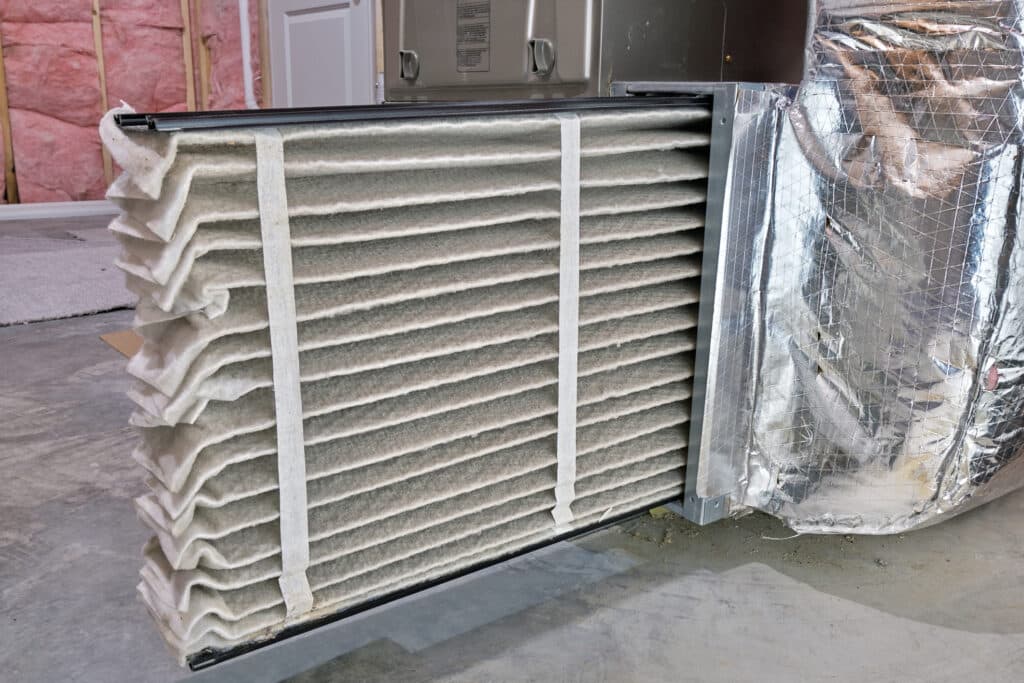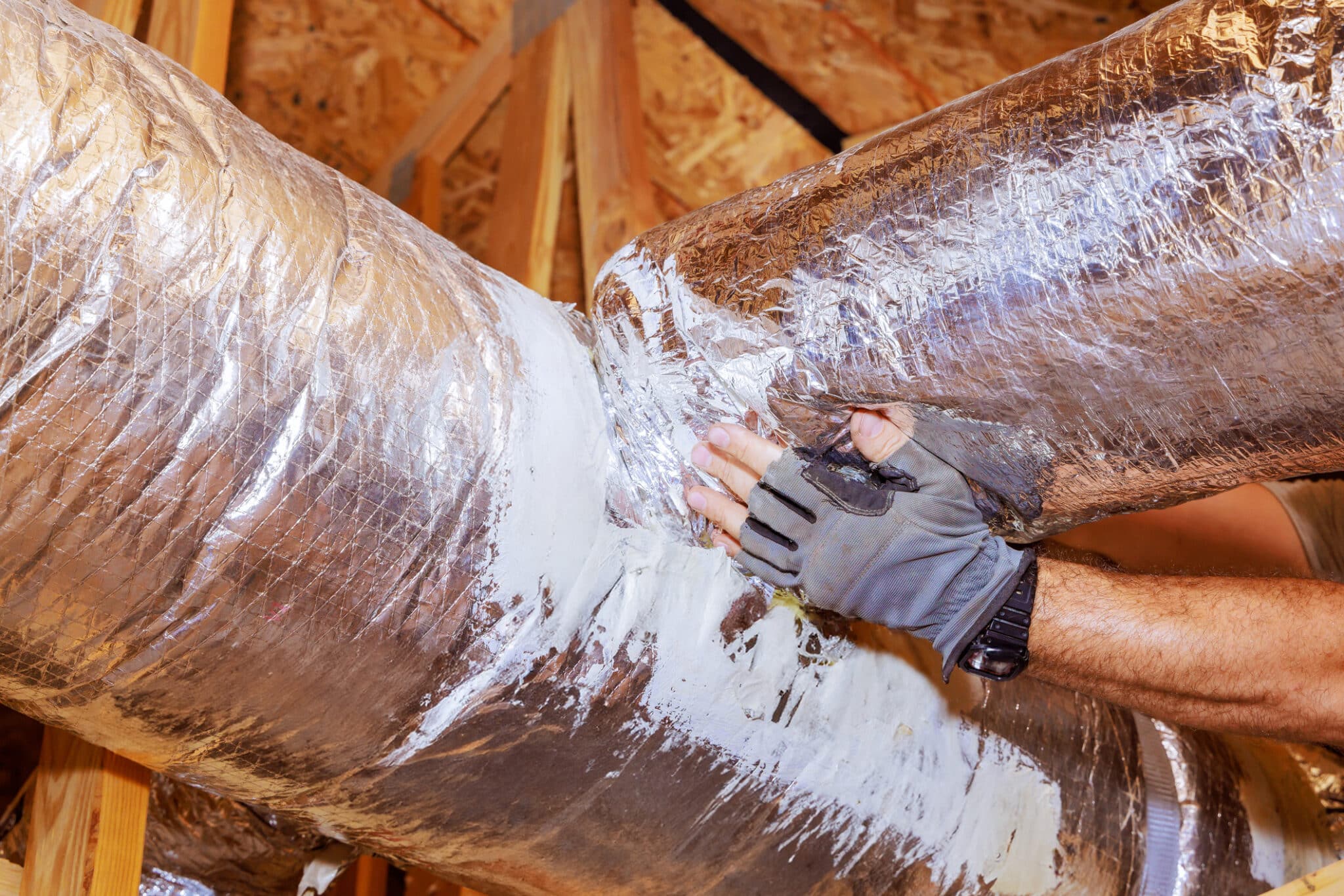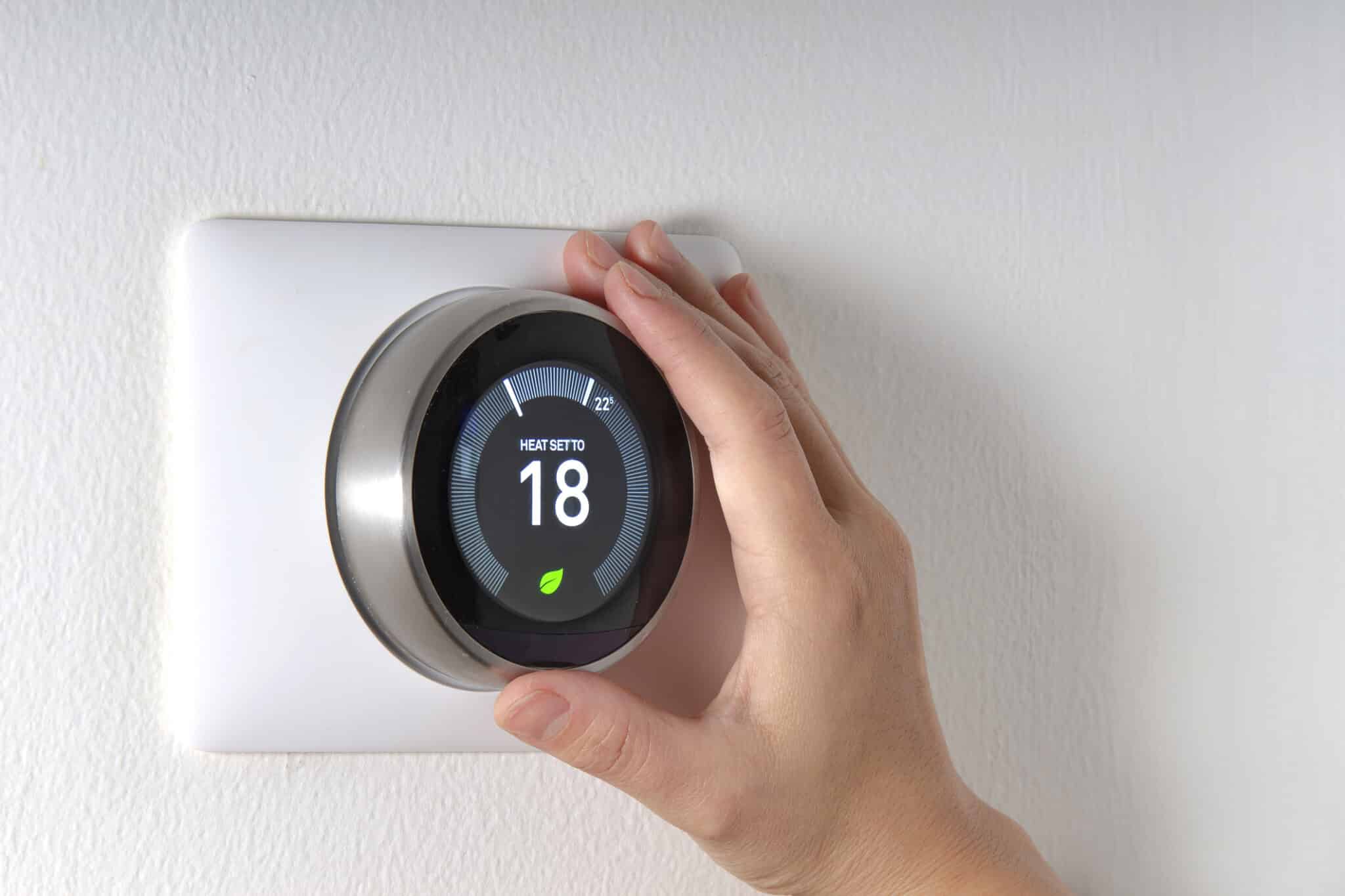
Why Fall Furnace Maintenance is Crucial in Dallas
- Avoid Winter Breakdowns: Regular fall maintenance can prevent unexpected furnace failures during cold winter months.
- Enhance Efficiency: A well-maintained furnace runs more efficiently, saving you money on energy bills.
- Ensure Safety: Proper maintenance reduces the risk of dangerous carbon monoxide leaks or fire hazards.
- Extend Lifespan: Regular tune-ups help prolong the life of your furnace, delaying costly replacements.
- Climate-Specific Needs: Dallas’s unique climate poses particular challenges that make timely maintenance even more critical.
- Cost-Effective: Investing in a fall check-up can prevent expensive emergency repairs in the future.
- Local Expertise Matters: Choosing a Dallas-based HVAC professional ensures they understand the specific needs of your area.
Is your furnace ready for the Dallas winter? With the cooler months approaching, ensuring your furnace is in top condition is essential. Timely maintenance isn’t just about avoiding discomfort; it’s about safeguarding your home and family. Dallas and Arlington, TX, experience a unique climate that can put extra strain on your heating system, making fall the perfect time for a professional tune-up. Regular maintenance not only prepares your furnace for the colder weather but also optimizes its efficiency, leading to lower energy costs and a safer home environment.
The Importance of Fall Furnace Maintenance
Why is fall furnace maintenance so important in Dallas? As the temperatures begin to drop, your furnace becomes the heart of your home’s comfort. Ensuring it’s in peak condition before the cold sets in can make all the difference between a cozy winter and an emergency call to your HVAC technician.
One of the primary benefits of fall furnace maintenance is safety. Furnaces, especially gas models, can develop issues that may lead to dangerous situations, such as carbon monoxide leaks or even fires. Regular inspections can catch these problems early, giving you peace of mind.
Another crucial factor is efficiency. A well-maintained furnace operates more efficiently, using less energy to keep your home warm. This not only reduces your carbon footprint but also leads to significant cost savings on your energy bills. Given the long heating season in Dallas, these savings can add up quickly.
Finally, fall maintenance helps prevent winter breakdowns. There’s nothing worse than having your furnace fail on the coldest day of the year. By addressing potential issues during a fall tune-up, you can avoid the inconvenience and cost of emergency repairs when you need your furnace the most.
Understanding Your Furnace: Types and Functions
To appreciate the importance of regular maintenance, it’s helpful to understand the basics of your furnace. In Dallas, homeowners typically use one of three main types of furnaces: gas, electric, or oil. Each has its own advantages, and each requires specific maintenance to function optimally.
Gas furnaces are the most common in Dallas. They operate by igniting natural gas or propane, which heats the air before it is distributed throughout your home. These systems are highly efficient but need regular checks for gas leaks and proper burner operation.
Electric furnaces are another option, especially in areas where electricity costs are lower. They work by passing air over electric heating elements, warming it before sending it through the ducts. Electric furnaces generally require less maintenance than gas units, but it’s still essential to check the wiring and heating elements annually.
Oil furnaces are less common but still in use, particularly in older homes. They function similarly to gas furnaces but burn oil to generate heat. Oil furnaces require regular cleaning of the burner and heat exchanger, as well as monitoring oil levels and filters to ensure smooth operation.
Why Dallas Homes Need Special Attention
Dallas homes face unique challenges when it comes to furnace maintenance. The local climate plays a significant role in how your heating system performs and why fall maintenance is so crucial. While Dallas is known for its hot summers, the winter months can bring unexpected cold snaps that put extra strain on your furnace.
The fluctuating temperatures in Dallas can cause your furnace to cycle on and off more frequently. This constant cycling increases wear and tear on the system, leading to potential breakdowns if not properly maintained. Regular furnace maintenance helps ensure that your furnace can handle these temperature changes without losing efficiency or reliability.
Additionally, the humidity levels in Dallas can affect your furnace’s performance. High humidity can cause components to corrode or wear out faster, particularly in older systems. A professional tune-up includes checking these parts to prevent humidity-related damage, and ensuring your furnace remains in good working order throughout the season.
Another factor is the dust and allergens common in the Dallas area. These can accumulate in your furnace’s filter and ductwork, reducing efficiency and air quality. Fall furnace maintenance involves cleaning or replacing filters and inspecting the ductwork to ensure clean air is circulated in your home, which is especially important for those with allergies or respiratory issues.
Essential Steps in a Professional Furnace Tune-Up
When you schedule a professional furnace tune-up in Dallas, you’re investing in the long-term health of your heating system. A typical furnace maintenance visit includes several key steps that ensure your furnace is ready for the winter months.
First, the cleaning process begins. Dust, dirt, and debris can accumulate in your furnace over time, reducing its efficiency and potentially causing damage. A technician will clean the blower, motor, and other components to ensure smooth operation. Clean components not only improve performance but also contribute to better indoor air quality.
Next, the inspection phase is crucial. The technician will thoroughly inspect your furnace for any signs of wear and tear. This includes checking the heat exchanger for cracks or damage, which is essential for preventing dangerous carbon monoxide leaks. The technician will also inspect the burner and flame sensor to ensure they are functioning correctly, as these are critical for the safe operation of gas furnaces.
The testing phase follows. The technician will test the system to ensure it’s operating at peak efficiency. This includes checking the thermostat to make sure it’s accurately reading the temperature and communicating with the furnace. They will also measure the airflow and temperature output to verify that the system is heating your home evenly and effectively.
Finally, the technician will provide you with a furnace maintenance checklist. This list includes all the tasks performed during the tune-up and any recommendations for repairs or further furnace maintenance. This checklist is invaluable for keeping track of your furnace’s condition and planning for future maintenance needs.

DIY Furnace Maintenance Tasks
While professional furnace maintenance is essential, there are several tasks that homeowners in Dallas can handle themselves to keep their furnaces running smoothly between professional tune-ups. These simple, yet effective tasks can help you extend the life of your furnace and ensure it operates efficiently throughout the winter.
- Replace or Clean the Air Filter:
The air filter in your furnace plays a crucial role in maintaining indoor air quality and ensuring your system runs efficiently. During the heating season, it’s recommended to check your filter monthly. A dirty filter restricts airflow, forcing your furnace to work harder and increasing energy costs. Depending on the type of filter, you can either clean or replace it. Most filters should be replaced every 1 to 3 months.
- Check the Thermostat:
Make sure your thermostat is set to the correct temperature and functioning properly. If you have a programmable thermostat, take the time to adjust the settings according to your schedule. Ensuring that your thermostat is working correctly can help prevent unnecessary energy use and keep your home comfortable.
- Inspect the Vents and Ducts:
Walk around your home and check that all the vents are open and unblocked. Furniture, rugs, or curtains can accidentally obstruct airflow, causing your furnace to work harder. Also, visually inspect any accessible ductwork for leaks or damage. If you notice anything unusual, it’s best to contact a professional to assess the situation.
- Monitor the Pilot Light (for Gas Furnaces):
For those with gas furnaces, regularly checking the pilot light is important. The flame should be a steady blue. If you notice a yellow or flickering flame, it could indicate a problem with the gas mixture or a venting issue, both of which require professional attention.
- Keep the Area Around the Furnace Clear:
Ensure that the space around your furnace is free from clutter, especially flammable materials like paper, cleaning supplies, or fabric. A clear area not only reduces fire risk but also allows for better airflow and easier access during furnace maintenance.
How Often Should Furnace Maintenance Be Done?
Regular furnace maintenance is crucial to ensuring your heating system runs efficiently and reliably, especially in a city like Dallas, where the weather can be unpredictable. But how often should you schedule these furnace maintenance checks to keep your furnace in top shape?
Annual Maintenance:
Experts recommend scheduling a professional furnace tune-up at least once a year. The ideal time for this is during the fall, just before the colder weather sets in. This timing allows your HVAC technician to identify and fix any potential issues that could lead to breakdowns during winter when your furnace is needed most. Annual furnace maintenance helps in extending the lifespan of your furnace, improving efficiency, and reducing energy bills.
Seasonal Checks:
In addition to the annual professional tune-up, it’s wise to perform some basic checks at the beginning of each heating season. This includes replacing or cleaning the air filter, checking the thermostat settings, and ensuring that the vents and ducts are clear. Seasonal checks are quick and simple but can make a big difference in the performance of your furnace.
Special Circumstances:
If you’ve recently moved into a new home, installed a new furnace, or experienced unusual furnace behavior (like odd noises or inconsistent heating), you might need to schedule additional maintenance. Newer furnaces may require different maintenance schedules based on the manufacturer’s recommendations, so always refer to your furnace’s manual for specific guidance.
Signs Your Furnace Needs Immediate Attention
Even with regular furnace maintenance, furnaces can sometimes develop issues that require prompt attention. Recognizing these signs early can help you avoid more serious problems and costly repairs down the line. Here are the key warning signs that your furnace may need immediate professional intervention.
- Strange Noises:
If you hear unusual sounds like banging, popping, squealing, or grinding coming from your furnace, it’s a clear indication that something is wrong. These noises can be caused by various issues, such as loose components, a failing blower motor, or ignition problems. Ignoring these sounds can lead to more severe damage over time. - Uneven Heating:
If some rooms in your home are warmer than others, or if the furnace struggles to maintain a consistent temperature, this could indicate an issue with your system. Uneven heating can be caused by problems like clogged filters, ductwork leaks, or a malfunctioning thermostat. It’s important to address this issue quickly to ensure comfort and efficiency throughout your home. - Unusually High Energy Bills:
A sudden spike in your energy bills without a corresponding increase in usage is a red flag. This often signals that your furnace is working harder than it should, possibly due to worn-out components, a dirty filter, or a failing system. High energy bills are often one of the first signs of an underlying problem, so it’s crucial to have your system checked as soon as possible. - Frequent Cycling:
If your furnace is constantly turning on and off, known as short cycling, this could be due to an issue with the thermostat, airflow restriction, or even an oversized furnace. Short cycling not only increases wear and tear on the system but also reduces your home’s comfort level. Immediate attention is needed to prevent further damage. - Yellow Pilot Light:
For gas furnaces, the pilot light should be a steady blue flame. A yellow or flickering flame indicates a problem with the gas mixture, which could be due to a dirty burner or other issues that need professional diagnosis. A yellow flame can also signal a potential carbon monoxide leak, which is a serious safety concern. - Unpleasant Odors:
If you notice strange or unpleasant odors coming from your furnace, such as a burning smell or the scent of gas, it’s crucial to act quickly. A burning smell can indicate overheating components, while a gas smell could signal a leak. In the case of a gas odor, you should turn off the furnace, evacuate your home, and contact a professional immediately.
Safety Considerations: Avoiding Carbon Monoxide and Fire Hazards
Ensuring your furnace is safe to operate is one of the most important aspects of regular maintenance. In Dallas, where the winter season may demand continuous furnace use, it’s crucial to understand the potential risks of carbon monoxide leaks and fire hazards, and how proper furnace maintenance can mitigate these dangers.
Preventing Carbon Monoxide Leaks:
Carbon monoxide (CO) is a colorless, odorless gas that can be deadly if it accumulates in your home. Furnaces, particularly gas and oil models, have the potential to produce CO if they aren’t functioning correctly. This can happen due to a cracked heat exchanger, poor ventilation, or incomplete combustion. Regular furnace maintenance involves checking these critical components to ensure they are intact and functioning properly.
Installing a carbon monoxide detector near your furnace and in sleeping areas is an essential safety measure. These detectors can alert you to the presence of CO, giving you time to evacuate and seek help. During a professional tune-up, your technician will also check the flue and venting system to ensure CO is being properly expelled from your home.
Reducing Fire Hazards:
Furnaces can pose a fire risk if they aren’t maintained properly. Over time, dust and debris can accumulate in and around your furnace, increasing the risk of fire. A professional cleaning as part of your regular furnace maintenance routine removes these hazards. Additionally, your technician will inspect the electrical components and connections to ensure there are no frayed wires or loose connections that could spark a fire.
Another fire hazard involves improper storage near the furnace. Keep the area around your furnace clear of flammable materials, such as paper, cloth, or chemicals. This ensures that even in the unlikely event of a malfunction, the risk of a fire spreading is minimized.

Preparing Your Home for Furnace Maintenance
Preparing your home before a technician arrives for furnace furnace maintenance can make the process smoother and more efficient. Taking a few simple steps ensures that the professional can work quickly and thoroughly, helping you get the most out of your service appointment.
- Clear the Area Around the Furnace:
Make sure the space around your furnace is clutter-free. Remove any items like storage boxes, cleaning supplies, or laundry that might obstruct access to the unit. A clear area allows the technician to move freely and access all parts of the furnace without delay. Additionally, it reduces the risk of accidental damage to your belongings during the service. - Check the Thermostat:
Before the technician arrives, check your thermostat settings to ensure they’re functioning correctly. If you have a programmable thermostat, review the settings to see if they align with your daily routine. This information will help the technician assess whether your furnace is operating efficiently with your current settings. - Replace the Air Filter (if needed):
While most technicians will check and replace the air filter during their visit, it’s a good idea to have a spare filter on hand if your system uses standard sizes. If the filter is dirty and hasn’t been changed recently, replacing it beforehand can also save time. A clean filter not only improves air quality but also ensures that the technician can focus on more complex tasks during the furnace maintenance visit. - Make Note of Any Issues:
If you’ve noticed any unusual behavior from your furnace, such as strange noises, inconsistent heating, or unexpected spikes in your energy bills, make a note of these issues. Share this information with the technician when they arrive. Being aware of specific problems helps the technician diagnose potential issues more quickly and accurately. - Prepare Questions:
If you have any questions about your furnace’s performance or maintenance schedule, write them down before the appointment. This is a great opportunity to get expert advice on how to maintain your system, improve energy efficiency, or address any concerns you might have about its operation. - Ensure Easy Access:
Make sure the technician has easy access to the furnace and any other areas they might need to inspect, such as the thermostat, ductwork, or ventilation systems. If your furnace is located in a basement, attic, or crawl space, ensure the path to these areas is well-lit and free of obstacles.
FAQs: Fall Furnace Maintenance in Dallas
-
How often should I replace my furnace filter?
Change your furnace filter every 1 to 3 months during winter.
-
Can I perform furnace maintenance myself?
You can handle basics like filter changes, but leave the detailed maintenance to a professional.
-
What should I do if my furnace makes strange noises?
Call a professional immediately—noises often signal a problem needing urgent attention.
-
Why is my furnace cycling on and off?
This could indicate issues like a dirty filter or thermostat problem. Have it checked ASAP.
-
Is annual furnace maintenance necessary?
Yes, yearly maintenance prevents breakdowns, improves efficiency, and ensures safety.


